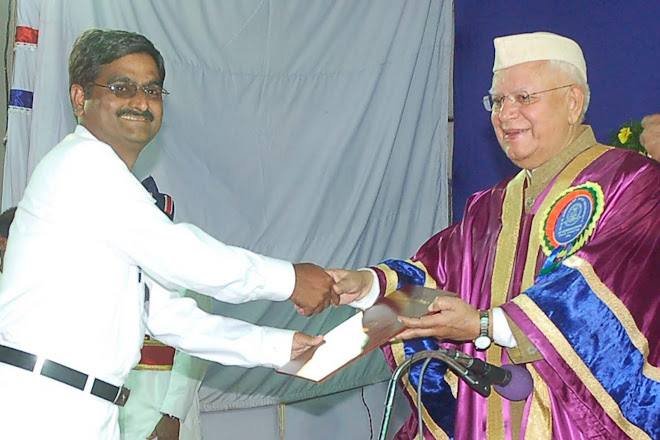Six common challenging classroom behaviors in school education are described below and briefly. These scenarios, with the corresponding strategies, have been used in faculty development workshops to engage faculty in further developing and strengthening their teaching excellence.
1. Unprepared students:
A small group of students often attends your class, but its members have not read the assigned readings, and therefore contribute little in discussions. How would you handle this situation?
• Give brief, periodic quizzes- A highly successful technique used (and recommended) is the frequent employment of quizzes, especially Instant Feedback Assessment Techniques (IF-ATs). IF-ATs refer to quizzing techniques that provide instant feedback to students. Instructors can administer IF-ATs for full credit or partial credit during each class session, rather than solely for traditional mid-term or final exams.
• Provide study questions or study guides to be completed by class session (can be submitted for grading)
• Assign students to present selected content to the class
2. Inattentive:
A few students enjoy reading the paper during class or frequently carry on their own conversation, which, at times, annoys others. How would you handle this situation?
• Try using small groups (increases engagement)
• Use Think/Pair/Share (call on inattentive students, after asking a question that students think about and share with a peer)
• Use Write/Pair/Share (call on inattentive students, after asking a question, having students write down an answer, and having them share their answers with a partner) or One Minute Paper (call on those students, after asking a question, and students write a one-minute answer)
• Move around the classroom for proximity to inattentive students
• Rotate class seating or re-group students
• Confer with student(s) privately
3. Reluctant to Participate in Class:
A student comes to class, sits in the back of the class near the door, rarely speaks to classmates, and has yet to ask or share information in class. How would you handle this situation?
• Use structured small groups: assign group roles and require group processing
• Randomly select group members to share a summary of group work
• Use Think-Pair-Share and Write-Pair-Share
4. Hostile/Oppositional Behavior:
A student seems to have a chip on his/her shoulder. His/ her comments in class often sound either angry or hostile. Even his/her nonverbal behavior seems contentious (looks of contempt, etc.). How would you handle this situation?
• Acknowledge student as an individual (encouraging comments on assignments, confer with student on assignments, respond in a constructive manner, etc.)
• Meet privately with the student and respectfully ask him or her to moderate his or her behavior.
• Listen carefully and respectfully. Then state your position, calmly presenting the issue to entire class, and encourage responses
5. Argumentative/Heated Discussions:
A lively class discussion has turned into an intense argument involving 4-6 students. Hostile and damaging comments are being exchanged. How would you handle this situation?
• Use constructive controversy/structure a debate
-Encourage discussion of multiple views
-Instruct students to debate the opposite view
-Encourage discussion of multiple views
• List evidence of views on board (Two-Column
method or more, representing each view)
• Slow tempo of voice and ask an open-ended question
• Use Rotating Chair technique (speaker summarizes previous statement before sharing their comment)
• Circular Response Discussion (each student shares a comment)
6. Cheating Student Behavior:
You just discovered a student cheating on an exam in your class. How would you handle
this situation?
• Review school’s policy [e.g., (Office for Student Conduct and Academic Integrity)]
• Remind class about consequences of cheating (e.g., failing assignment/test, lowering final grade, failing course, etc.)
To Prevent Cheating:
• Review policy in syllabus
• Require multiple drafts of paper
• Use different forms of the same test or randomized test items
Challenges- Strategies
· We recommend that teachers incorporate quizzes/questions directly into their class session materials and select the appropriate response tool for their particular setting.
· Holding students accountable increases preparedness.
· Study Books- Many future and early career faculty search for ways to ensure that students complete required readings and master massive amounts of content before class. We encourage future and early career teachers to develop study books consisting of a small set of questions based on content to be addressed in each class. Effective teachers develop questions that address
· The IF-AT (Instant Feedback Assessment Techniques)questions shall indicate what “might be on an exam.”
· IF-ATs are a lower technology tool. The lower, less expensive tech resource includes an actual IF-AT form resembling a lottery ticket, in which students simply scratch off a given rectangle to expose the correct answer.
· The IF-ATs are constructed so that the answers cannot be changed and instructors can tell how many trials it took to get the final answer.
· Instructors can choose from a variety of response tools, including some higher-technology tools.
· Teachers may prefer response forms currently used by Challenging Behavior Potential Management Strategies

No comments:
Post a Comment